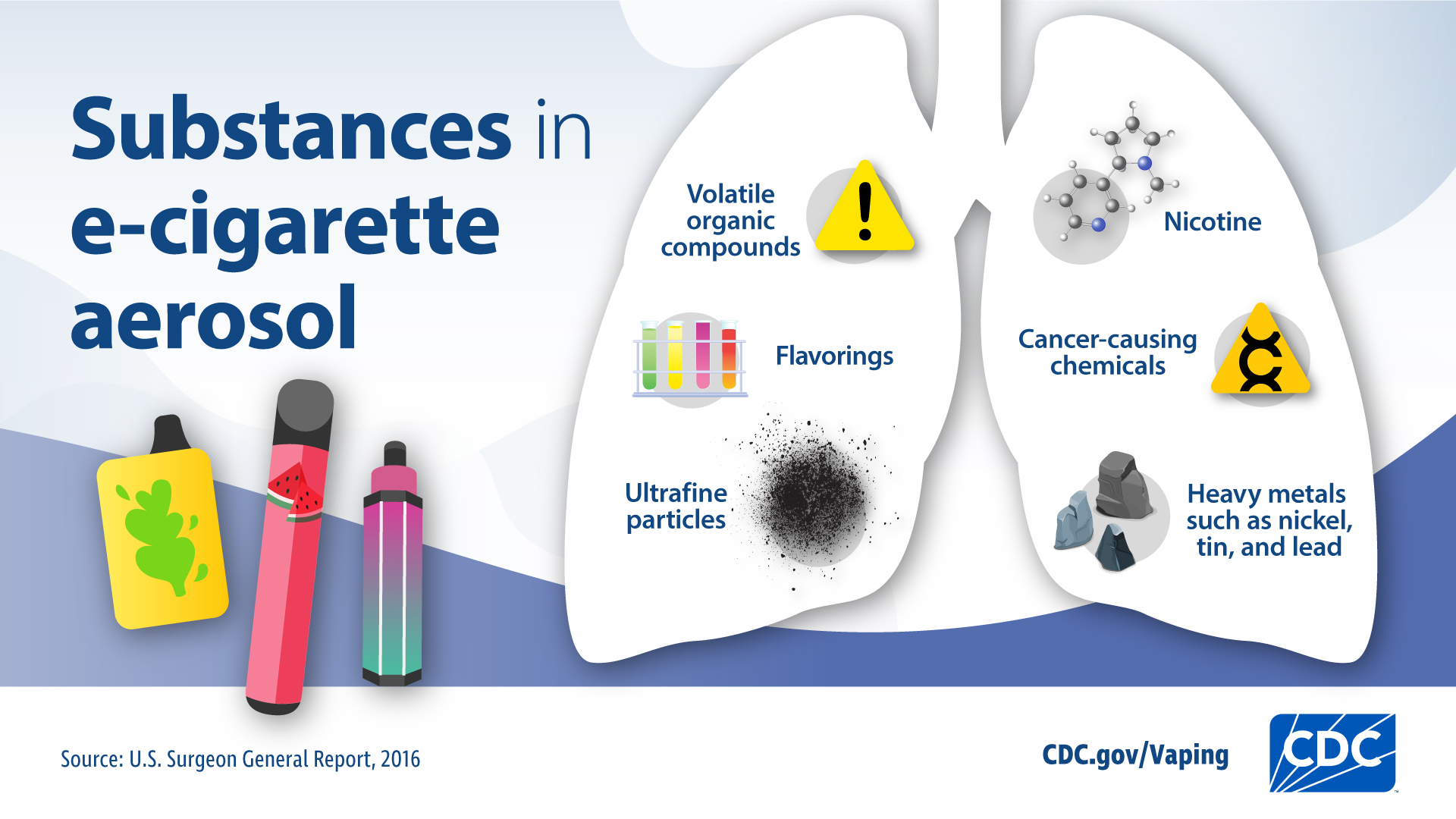A recent study analyzing electronic cigarettes reveals concerning levels of toxic substances, challenging perceptions of their relative safety compared to combustible tobacco.
Key Findings of the Study
- Elevated Levels of Harmful Carbonyls: Significant concentrations of formaldehyde, acetaldehyde, and acrolein—known carcinogens and respiratory irritants—were detected, particularly in devices operating at higher power settings.
- Presence of Toxic Metals: Aerosols contained measurable levels of lead, chromium, nickel, and manganese. Chronic inhalation of these metals is linked to lung, liver, cardiovascular, and neurological damage.
- Variability Between Products: Toxin levels varied dramatically between brands, device types (e.g., pod mods vs. tank systems), and e-liquid flavors, indicating inconsistent manufacturing standards.
- Potential for Unknown Compounds: Heating e-liquid components (propylene glycol, vegetable glycerin, flavorants) at high temperatures can create new compounds (Thermal Degradation Products) with unknown long-term health effects.
Health Implications of Identified Toxins
The substances identified carry significant risks:

Formaldehyde is a known human carcinogen (Group 1 by IARC).
Acetaldehyde is a probable human carcinogen (Group 2B).
Acrolein causes severe respiratory irritation and is implicated in cardiovascular disease.
Heavy metals like lead and chromium are cumulative toxins affecting multiple organ systems.
Recommendations for Consumers
- Understand the Risk: Recognize that “less harmful” does not equate to “safe.” E-cigarettes deliver an aerosol containing potentially harmful chemicals.
- Avoid High-Power Settings: Higher voltages/wattages dramatically increase the production of carbonyl compounds.
- Be Cautious with Flavors: Some flavor chemicals (e.g., diacetyl, cinnamaldehyde) are associated with specific lung injuries independently of nicotine.
- Not Recommended for Non-Smokers/Youth: The study reinforces that e-cigarettes pose unnecessary health risks to these groups.
- Seek Cessation Support: Smokers seeking to quit should consult healthcare professionals about FDA-approved cessation methods.
Urgent Need for Regulation and Research
These findings highlight:
The critical need for stricter, standardized regulatory oversight of e-cigarette design, manufacturing, and ingredient disclosure.
Ongoing research is essential to fully understand the long-term consequences of inhaling these complex chemical mixtures, especially concerning lung health and cancer risk.








